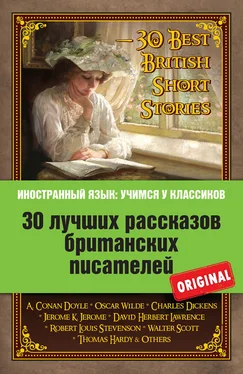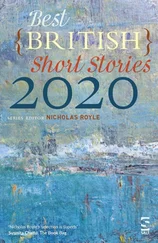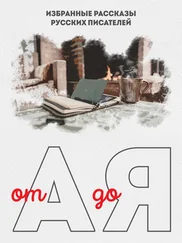1 ...6 7 8 10 11 12 ...113 ‘Well,’ said Jabez, ‘I’ve allus heard say that a good deed brings its own reward wi’ it – and it’s a fine proverb. I feels it in my insides.’
‘P’raps it’s the gin, Jabez.’
‘No – it’s virtue. It’s warmer nor gin a long sight. Gin gives a smouldering spark, but a good conscience is a blaze of furze.’
The farm of the Hockins was small, and Hockin looked after his cattle himself. One maid was kept, but no man in the house. All were wont to retire early to bed; neither Hockin nor his wife had literary tastes, and were not disposed to consume much oil, so as to read at night.
During the night, at what time she did not know, Mrs. Hockin awoke with a start, and found that her husband was sitting up in bed listening. There was a moon that night, and no clouds in the sky. The room was full of silver light. Elizabeth Hockin heard a sound of feet in the kitchen, which was immediately under the bedroom of the couple.
‘There’s someone about,” she whispered; “go down, Jabez.’
‘I wonder, now, who it be. P’raps its Sally.’
‘It can’t be Sally – how can it, when she can’t get out o’ hem room wi’out passin’ through ours?’
‘Run down, Elizabeth, and see.’
‘It’s your place to go, Jabez.’
‘But if it was a woman – and me in my night-shirt?’
‘And, Jabez, if it was a man, a robber – and me in my night-shirt? It ’ud be shameful.’
‘I reckon us had best go down together.’
‘We’ll do so – but I hope it’s not–’
‘What?’
Mrs. Hockin did not answer. She and her husband crept from bed, and, treading on tiptoe across the room, descended the stair.
There was no door at the bottom, but the staircase was boarded up at the side; it opened into the kitchen.
They descended very softly and cautiously, holding each other, and when they reached the bottom, peered timorously into the apartment that served many purposes – kitchen, sitting-room, and dining-place. The moonlight poured in through the broad, low window.
By it they saw a figure. There could be no mistaking it – it was that of Aunt Joanna, clothed in the tattered sheet that Elizabeth Hockin had allowed for her grave-clothes. The old woman had taken one of the fine linen sheets out of the cupboard in which it had been placed, and had spread it over the long table, and was smoothing it down with her bony hands.
The Hockins trembled, not with cold, though it was mid-winter, but with terror. They dared not advance, and they felt powerless to retreat.
Then they saw Aunt Joanna go to the cupboard, open it, and return with the silver spoons; she placed all six on the sheet, and with a lean finger counted them.
She turned her face towards those who were watching her proceedings, but it was in shadow, and they could not distinguish the features nor note the expression with which she regarded them.
Presently she went back to the cupboard, and returned with the silver teapot. She stood at one end of the table, and now the reflection of the moon on the linen sheet was cast upon her face, and they saw that she was moving her lips – but no sound issued from them.
She thrust her hand into the teapot and drew forth the coins, one by one, and rolled them along the table. The Hockins saw the glint of the metal, and the shadow cast by each piece of money as it rolled. The first coin lodged at the further left-hand corner and the second rested near it; and so on, the pieces were rolled, and ranged themselves in order, ten in a row. Then the next ten were run across the white cloth in the same manner, and dropped over on their sides below the first row; thus also the third ten. And all the time the dead woman was mouthing, as though counting, but still inaudibly.
The couple stood motionless observing proceedings, till suddenly a cloud passed before the face of the moon, so dense as to eclipse the light.
Then in a paroxysm of terror both turned and fled up the stairs, bolted their bedroom door, and jumped into bed.
There was no sleep for them that night. In the gloom when the moon was concealed, in the glare when it shone forth, it was the same, they could hear the light rolling of the coins along the table, and the click as they fell over. Was the supply inexhaustible? It was not so, but apparently the dead woman did not weary of counting the coins. When all had been ranged, she could be heard moving to the further end of the table, and there re-commencing the same proceeding of coin-rolling.
Not till near daybreak did this sound cease, and not till the maid, Sally, had begun to stir in the inner bedchamber did Hockin and his wife venture to rise. Neither would suffer the servant girl to descend till they had been down to see in what condition the kitchen was. They found that the table had been cleared, the coins were all back in the teapot, and that and the spoons were where they had themselves placed them. The sheet, moreover, was neatly folded, and replaced where it had been before.
The Hockins did not speak to one another of their experiences during the past night, so long as they were in the house, but when Jabez was in the field, Elizabeth went to him and said: “Husband, what about Aunt Joanna?”
‘I don’t know – maybe it were a dream.’
‘Curious us should ha’ dreamed alike.’
‘I don’t know that; ’twere the gin made us dream, and us both had gin, so us dreamed the same thing.’
‘’Twere more like real truth than dream,’ observed Elizabeth. ‘We’ll take it as dream,’ said Jabez. ‘Mebbe it won’t happen again.’ But precisely the same sounds were heard on the following night. The moon was obscured by thick clouds, and neither of the two had the courage to descend to the kitchen. But they could hear the patter of feet, and then the roll and click of the coins. Again sleep was impossible.
‘Whatever shall we do?’ asked Elizabeth Hockin next morning of her husband. “Us can’t go on like this wi’ the dead woman about our house nightly. There’s no tellin’ she might take it into her head to come upstairs and pull the sheets off us. As we took hers, she may think it fair to carry off ours.”
‘I think,’ said Jabez sorrowfully, ‘we’ll have to return ’em.’
‘But how?’
After some consultation the couple resolved on conveying all the deceased woman’s goods to the churchyard, by night, and placing them on her grave.
‘I reckon,’ said Hockin, ‘we’ll bide in the porch and watch what happens. If they be left there till mornin’, why we may carry ’em back wi’ an easy conscience. We’ve spent some pounds over her buryin’.’
‘What have it come to?’
‘Three pounds five and fourpence, as I make it out.’
‘Well,’ said Elizabeth, ‘we must risk it.’
When night had fallen murk, the farmer and his wife crept from their house, carrying the linen sheets, the teapot, and the silver spoons. They did not start till late, for fear of encountering any villagers on the way, and not till after the maid, Sally, had gone to bed.
They fastened the farm door behind them. The night was dark and stormy, with scudding clouds, so dense as to make deep night, when they did not part and allow the moon to peer forth.
They walked timorously, and side by side, looking about them as they proceeded, and on reaching the churchyard gate they halted to pluck up courage before opening and venturing within. Jabez had furnished himself with a bottle of gin, to give courage to himself and his wife.
Together they heaped the articles that had belonged to Aunt Joanna upon the fresh grave, but as they did so the wind caught the linen and unfurled and flapped it, and they were forced to place stones upon it to hold it down. Then, quaking with fear, they retreated to the church porch, and Jabez, uncorking the bottle, first took a long pull himself, and then presented it to his wife.
Читать дальше
Конец ознакомительного отрывка
Купить книгу












